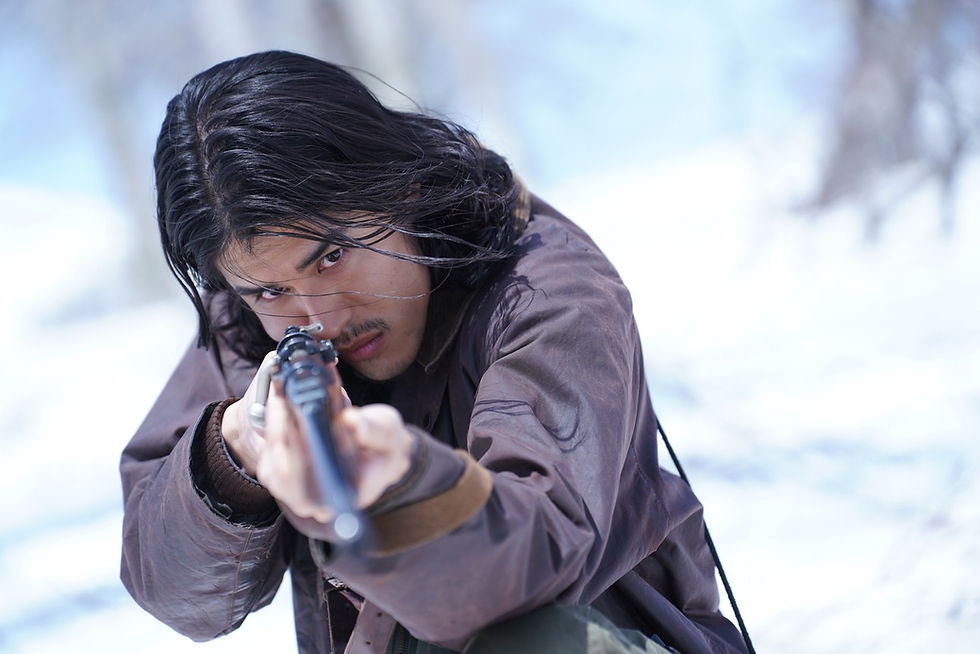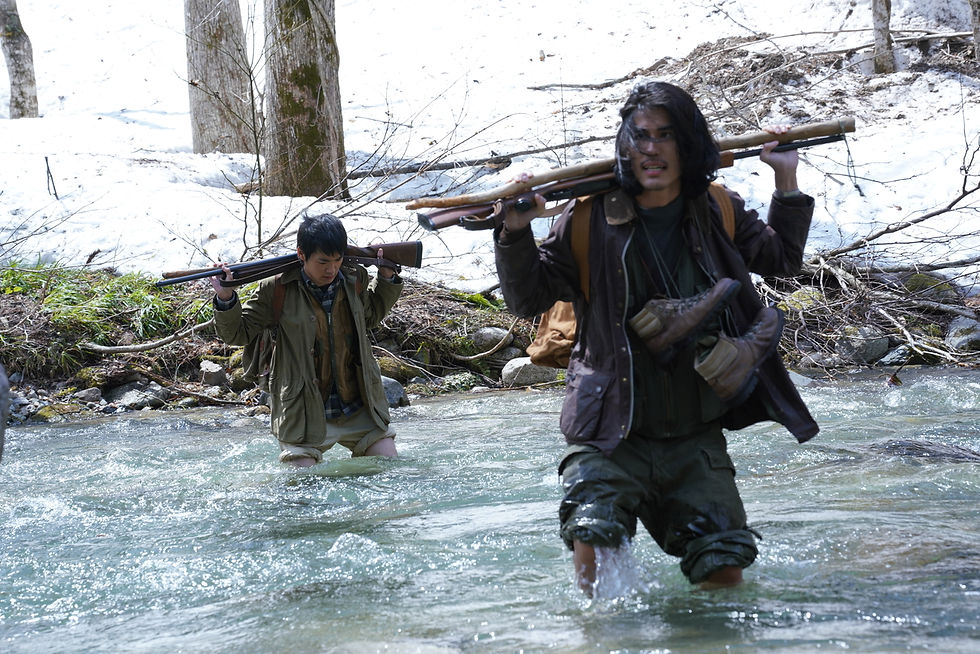Review: Promised Land
- ogradyfilm
- Jul 23, 2025
- 2 min read
Updated: Jul 23, 2025
Promised Land is an appropriate title for Masashi Iijima’s surprisingly mature directorial debut. It is, after all, a film about the inherent sacredness of one’s birthplace—the inextricable union of soil and blood, earth and spirit—and the double-edged sword of cultural heritage (humans are, for better or worse, inescapably tied to their native region), exploring traditions, customs, and ancestral rites of passage that are often dismissed as primitive, irrelevant, and obsolete by the modern/“civilized” world.

The movie’s style likewise perfectly complements its subject matter. The minimalistic plot, which revolves around a pair of hunters embarking on a (very illegal) ceremonial quest to cull the local bear population, unfolds with the patience and subtlety of a seasoned tracker stalking his prey. Long, unbroken takes, lingering wide shots, and pregnant pauses abound, creating an atmosphere of enveloping stillness and pervasive serenity. Despite this deliberate pace, however, the narrative never feels slow (not interminably so, anyway). Indeed, I’d even describe it as economical: not a single frame feels wasteful or superfluous; every image is necessary, playing an integral role in communicating the story’s central conflicts and core themes (man vs. nature, man vs. society, man vs. himself).
Although the tone is unabashedly quiet (albeit palpably intense), Promised Land is seldom truly silent; the sound design is immaculate, immersing the viewer in the action. When the protagonist (portrayed by the mononymous Kanichiro, who projects an enigmatic, vaguely sinister screen presence reminiscent of Tatsuya Nakadai and Tadanobu Asano) meticulously cleans and loads his rifle in the opening scene, for example, every scrape of the brush against metal and click of the weapon’s mechanisms reverberates as clearly and resonantly as an unnervingly close thunderclap. A later montage depicting another character (Rairu Sugita, personifying the aloof disillusionment of aimlessly rebellious youth) mucking out a chicken coop is underscored with a deafening cacophony of incessant chirps and clucks, highlighting the mind-numbing monotony of the grueling labor. The howl of wind, the creak and crack of swaying branches, the rustle of leaves, and the rhythmic crunch of partially melted snow underfoot paint an auditory landscape as rich and sprawling as the picturesque settings (turbulent rivers, sun-drenched mountains, thickets so dense that they border on impenetrable) to which they lend depth and texture.

Challenging in the moment yet endlessly rewarding to contemplate once its underlying subtext and deeper implications have been fully digested (not unlike Kaneto Shindo's The Naked Island or Ryusuke Hamaguchi's Evil Does Not Exist), Promised Land is the quintessential film festival experience: an unapologetically idiosyncratic early masterpiece from an emerging talent that merely whets the audience’s appetite, leaving them hungry for more. I am now eagerly awaiting Iijima’s next project and will be following his career with great interest.



Comments